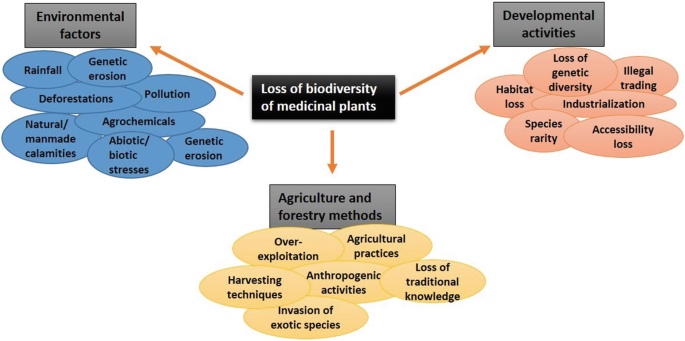Ethical Sourcing of Medicinal Plants: Why It Matters
Medicinal plants are the backbone of many traditional healing practices and modern medicines. However, the growing demand for these plants poses challenges for sustainability, biodiversity, and local communities. Ethical sourcing of medicinal plants is vital to ensuring that this valuable resource remains available for future generations while protecting the ecosystems and people who depend on it.
What Is Ethical Sourcing?
Ethical sourcing refers to the responsible and sustainable collection of medicinal plants, ensuring minimal environmental impact and fair treatment of local communities involved in harvesting. It combines ecological stewardship with social responsibility to create a balanced approach to resource use.
Key Principles of Ethical Sourcing
- Sustainability: Harvesting plants without depleting their natural populations.
- Biodiversity Protection: Avoiding harm to surrounding flora and fauna.
- Fair Trade Practices: Ensuring fair compensation and working conditions for local harvesters.
- Transparency: Tracking and documenting the supply chain to ensure ethical compliance.
Why Ethical Sourcing Matters
1. Preserving Biodiversity
Overharvesting of medicinal plants threatens the survival of many species, disrupting ecosystems and diminishing biodiversity. For example:
- Frankincense Trees: Overexploitation for essential oils has led to declining populations in certain regions.
- Endangered Herbs: Plants like ginseng and goldenseal are now at risk due to high demand.
2. Supporting Local Communities
Many medicinal plants are sourced from rural and indigenous communities that rely on them for their livelihoods. Ethical sourcing ensures:
- Fair Wages: Harvesters receive adequate compensation for their work.
- Cultural Preservation: Traditional knowledge about medicinal plants is respected and safeguarded.
- Economic Development: Communities benefit from sustainable trade practices.
3. Ensuring Product Quality
Sustainably harvested plants often result in higher-quality raw materials. Overharvesting or unethical practices can lead to contamination, loss of potency, or depletion of the plant’s medicinal properties.
4. Meeting Consumer Expectations
Modern consumers are increasingly conscious of environmental and ethical issues. Ethical sourcing aligns with these values, enhancing brand reputation and fostering trust.

Challenges in Ethical Sourcing
1. Lack of Regulation
Many countries lack strict guidelines for harvesting medicinal plants, leading to exploitation and environmental damage.
2. Economic Pressures
High demand for certain plants can incentivize unsustainable practices, particularly in developing regions.
3. Knowledge Gaps
Harvesters may lack training in sustainable methods, leading to practices that harm plant populations and ecosystems.
4. Climate Change
Changing weather patterns and deforestation threaten the habitats of medicinal plants, complicating sustainable harvesting efforts.
Examples of Ethical Sourcing Practices
1. Sustainable Harvesting Techniques
- Rotation Harvesting: Allowing plant populations to regenerate by harvesting in cycles.
- Partial Harvesting: Collecting only parts of the plant, such as leaves or flowers, to allow regrowth.
2. Certification Programs
- FairWild Standard: A certification for wild-collected plants ensuring ecological sustainability and fair trade practices.
- Organic Certifications: Verifying that no harmful chemicals are used in cultivation.
3. Community Partnerships
Collaborating with local and indigenous communities to share profits and protect traditional knowledge.
4. Research and Monitoring
Using scientific studies to determine sustainable harvest levels and track the impact of collection practices on plant populations.
Success Stories in Ethical Sourcing
1. Rooibos Tea in South Africa
The sustainable harvesting and fair trade certification of rooibos tea have provided economic opportunities for local communities while preserving the plant’s natural habitat.
2. Himalayan Medicinal Herbs
Organizations in Nepal have worked with local communities to implement sustainable harvesting techniques for herbs like jatamansi and yarsagumba, ensuring their long-term availability.
3. FairWild-Certified Licorice in Central Asia
Licorice root, a key ingredient in herbal medicine, is now sustainably sourced through FairWild programs, benefiting both the environment and local economies.
How Consumers Can Support Ethical Sourcing
1. Choose Certified Products
Look for certifications like FairWild or USDA Organic to ensure ethical sourcing.
2. Research Brands
Support companies with transparent supply chains and sustainability commitments.
3. Buy Local
Purchase from local herbalists or cooperatives that prioritize ethical practices.
4. Advocate for Change
Encourage policymakers and businesses to implement and enforce sustainable harvesting regulations.
The Future of Ethical Sourcing
1. Technology and Innovation
Advances in tracking and monitoring technologies, such as blockchain and satellite imagery, can enhance supply chain transparency.
2. Greater Awareness
Educational campaigns can raise awareness among consumers and producers about the importance of ethical sourcing.
3. International Collaboration
Global partnerships between governments, NGOs, and businesses can create standardized guidelines for sustainable harvesting.
4. Conservation Efforts
Protecting the natural habitats of medicinal plants through reforestation and protected areas is crucial for long-term sustainability.
Conclusion
Ethical sourcing of medicinal plants is not just an environmental necessity but also a moral responsibility. It ensures the protection of biodiversity, supports local communities, and provides consumers with high-quality, sustainably sourced products. By embracing ethical practices, we can preserve the healing power of nature for generations to come.



